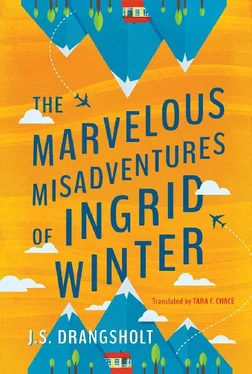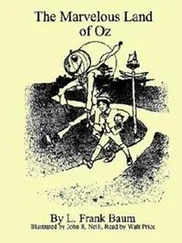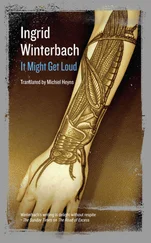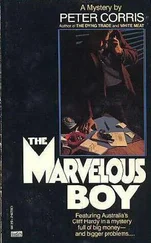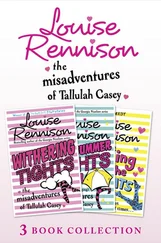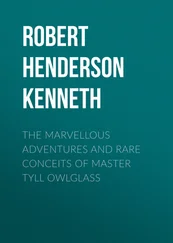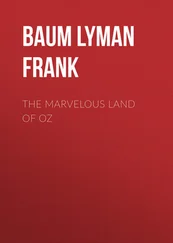“But internationalization is the reason we’re here!”
“Yeah, yeah,” I said. “Of course. But then you stole an icon and now we’re in danger of being sent to the gulag or tossed into a burning sinkhole. And I can’t sit in one of those little cages! I’m claustrophobic.”
Peter sighed and we sat there, each staring into our own glass.
“What if we just take it back,” I finally said. “Say it was a misunderstanding? Or a bad joke?”
“Take what back?”
“The icon.”
“Oh, right. The icon.”
I sighed as heavily as I could.
“Where is it now?”
“It’s still in the gift bag with some chocolate.”
“OK, I know what we’ll do. We discuss the whole thing with Artemis when he comes to take us to the Hermitage. We tell him the truth—that you’re not very bright, that you thought it was a present, and that the whole thing was a misunderstanding. Then everyone can stop searching for it. And we can have a good laugh.”
“Yes,” said Peter with a little start, “quite right.”
But when I saw who Artemis was, I felt less confident about my own plan. Pretty Putin gave us a clipped bow.
“Are you ready?”
I gulped.
“Why isn’t Ivan coming?” Ingvill whimpered.
“Ivan had an important meeting, unfortunately. So now I have the honor of escorting you.”
He leaned forward and kissed Ingvill’s hand, which made her look a tad more satisfied.
“Aren’t you going to tell him now?” whispered Peter.
I pushed him away.
“Don’t spit in my ear,” I said. “I’ll tell him when the time is right.”
“Tell what?” asked Ingvill with a pout.
“Tell him about Norwegian wildlife,” I said.
“Whatever,” she said and walked unsteadily toward the front door with Pretty Putin, a.k.a. Special Agent Artemis, while I swallowed the surprisingly large amount of saliva that had accumulated in my mouth. We were in trouble, big trouble.
Pretty Putin informed us that unfortunately he did not have a car at his disposal, and even though Saint Petersburg’s subway system was supposed to be top-notch, he chose to place us in the icy wind next to a gray winter canal. By the time we finally reached the Hermitage, Peter’s face was pale blue, and Ingvill’s wine buzz seemed to have disappeared into a burning sinkhole.
We took off our coats and left them at the coat check, then waited for Pretty Putin to buy our tickets.
“What would you like to see?” he asked.
“Hmm,” Ingvill said indecisively.
“I’d like to see the Italian Renaissance and Dutch Golden Age,” Peter said. “ About suffering they were never wrong / the old Masters… Isn’t that how the poem goes?”
Our guide bowed briefly to Peter.
“The old Masters,” Ingvill repeated, moving tentatively to stand beside Pretty Putin.
Then he looked to me, and I could feel his gaze trying to penetrate my skin and bones and all of me. Was this psychosomatic? I focused with all my might on blocking this out and wished I hadn’t used up so much of my strength on panic attacks in the last few months.
“And you?” he asked. “What kind of art are you interested in seeing?”
“The Golden Age.”
He nodded, sizing me up with his Putin eyes, and I swallowed again. In a panic. Because this wasn’t psychosomatic. This was Voight-Kampff, the test they give replicants that measures contractions of the iris and invisible particles emitted by the body, to determine whether the suspect’s response is empathic enough to tell if you’re dealing with a human or not.
Someone informs you that your mother just died. How do you react?
You’re at the Hermitage and are asked what kind of art you want to see. What do you say?
“Rembrandt and Brueghel,” I whispered.
He got a triumphant look in his eye and I wondered what I had revealed. I didn’t have time to think anymore about it, though, because now we were sweeping through the first floor at a whirlwind pace, up the ornate stairs and down three hallways, by niches and crannies, heading for the Golden Age.
I was grateful that Ingvill had laid claim to Pretty Putin. She was obviously a hundred thousand percent fascinated by everything he said, and he guided and gestured while she nodded, smiled, and giggled. At one point she even took his arm, but he wriggled free from her grasp by pointing at a painting.
Meanwhile Peter and I followed along behind, looking around at the paintings more or less at random.
“Why haven’t you said anything about the icon yet?”
“Because I think he’s giving us the Voight-Kampff test.”
“The what test?”
“All you need to do is to act like you care about your fellow humans and say as little as possible.”
“But I do care,” he said, insulted.
“You didn’t exactly give me the impression that you cared when I was the faculty coordinator, did you? Or when you forced me to be the bad cop? You act like you care, but you don’t actually give a hoot!”
“That’s—”
“Don’t act like you have no idea what I’m talking about. We both know that you’re mostly interested in covering your own ass.”
He grinned.
“I could have helped you, you know.”
“What do you mean?” I asked.
“I mean, you don’t have to be the one who gets reassigned to the preschool-teacher education program.”
I stared him in the eye.
“If not me, then who?”
He surreptitiously nodded his head toward Ingvill, who was still trying to sneak her arm in under Pretty Putin’s.
I closed my eyes and turned my face to the ceiling.
“Fine,” I said. “If you guarantee that I won’t be transferred, I’ll do my best to clear up this icon business.”
We shook hands.
“Alea iacta est,” I said.
“Omnes mundum facimus,” Peter said.
“What does that mean?”
“We all make the world.”
We were standing in front of Rembrandt’s The Return of the Prodigal Son , and I stared at it blankly. Looking at a father who believed he had lost his child forever. At a son, who finally found himself, in a space where he could raise his arms and stretch them into the air and feel free.
We all make the world.
My eyes filled with tears, until I could no longer see the son hugging his father tightly or the father receiving the son and saying that everything was OK.
Now you know who you are.
Now you have a center.
“I have to go to the bathroom,” I told Peter.
He took me by the arm and said, “Remember what’s at stake. You can’t give in.”
I hurried through the grand rooms and down hallways that were so cold the grandmothers guarding the art had to wear coats, shawls, hats, and gloves. I didn’t pay much attention to my surroundings until I reached the bathroom and an intense ammonia smell hit my nose and eyes. Most of the other people in there had come prepared and were holding handkerchiefs over their noses and mouths, but I didn’t have anything, so I threw up into my mouth several times before I was done.
Nor did I realize that the reason for the smell was that the toilet paper couldn’t be thrown into the toilet, so I had to fish it out again using the toilet brush before depositing it in the open bin beside the toilet.
When I finally made it to the sink, there was no soap, but hopefully ice water would knock out the worst of the bacteria. My reflection made me think of the gulag again and how abysmal the toilet facilities there must be. I tried to distract myself with thoughts of unicorns and fields of wildflowers and had almost managed to pull it together by the time I found my group by da Vinci’s Benois Madonna , where they were waiting in line behind a group of schoolchildren who were all trying to preserve the artwork for perpetuity on their cell phones.
Читать дальше
